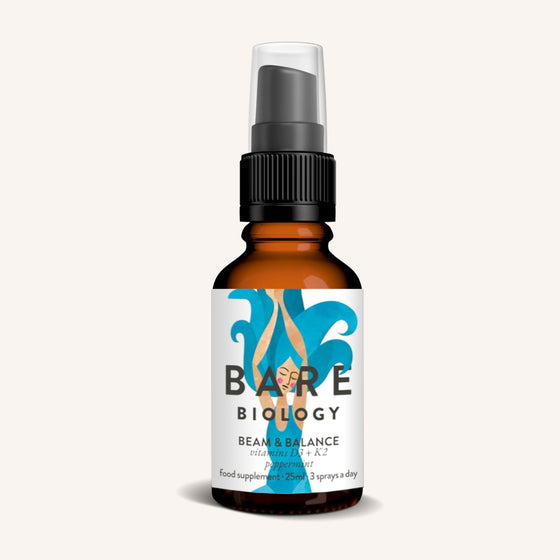Omega-3 and heart health
CONTENTS
Omega-3 and Heart Health Debunking the Confusion
Eggs were bad for you, now they’re good for you...it seems like every day there’s a new study declaring that a previously saintly food is now the mortal enemy (or vice versa) when it comes to looking after our health.
We all pore over food-related news stories as they seem to give us a sense of control over our messy, unpredictable bodies. That’s why it’s so frustrating when nutritional studies seem to contradict each other.
Take heart health for example. The advice on just what a heart-healthy diet looks like seems to change with confusing frequency. First, fat was to be avoided, then just saturated fat was singled out. Now saturated fat isn’t quite as bad as we first thought, while some studies suggest that eating full-fat dairy like yoghurt can actually protect the heart.
And then there’s a certain famous fat, produced by small oily fish. Once lauded by the press for its coronary benefits, omega-3 and heart health hit the headlines again in summer 2018 when research by the Cochrane Library seemed to show fish oil supplements had little effect on our risk of heart disease, stroke or death.
Yet the well-respected European Food Safety Authority (EFSA) remains convinced that omega-3 does have properties that help keep the heart healthy. It continues to support the claim that 3,000mg of DHA and EPA (two types of crucial omega-3) per day can maintain a healthy heart and healthy blood pressure.
It’s no wonder we’re so confused. But despite the conflicting advice, heart health remains a big concern for us all. Despite our best efforts, heart and circulatory diseases cause more than a quarter of all deaths in the UK, with one person every three minutes being admitted to hospital with a heart attack.
So is omega-3 good for heart health, or bad, or just neutral? We’re here to separate the facts from the fiction.
Related Products

Is omega-3 good for heart health?
The EFSA support the claim that omega-3 benefits heart health, but who are they?
A European advisory body, the EFSA works with our own UK Food Safety Agency to provide independent scientific opinions on anything to do with the food chain.
But what does the EFSA say specifically about omega-3 and the heart?
Omega-3 contributes to the heart’s normal function
First of all, the EFSA approves the claim that a daily intake of 250mg of EPA and DHA can help maintain normal cardiac function in healthy people.
Omega-3 helps maintain normal blood triglyceride levels
While triglycerides don’t get as much bad press as cholesterol, having high levels of this type of fat in your bloodstream is thought to be just as bad for your heart. A lipid produced by the body in response to the food we eat, triglycerides are known to contribute to the thickening of arteries which can stop the heart from working normally.
But the EFSA supports the claim that the omega-3 fatty acids EPA and DHA (found only in oily fish and fish oil supplements, not in plant-based sources of omega-3) can keep triglyceride levels normal. That’s why they support the claim that 2,000mg per day can contribute to the maintenance of normal blood triglyceride levels.
Omega-3 can maintain normal blood pressure
Having untreated high blood pressure – or hypertension – is bad news for the heart. It can leave it enlarged and less able to pump effectively.
But omega-3 has been found to offer benefits to those with high blood pressure and can prevent it developing in people with normal blood pressure. In fact, the EFSA support the claim that a daily intake of 3,000 mg of EPA and DHA can contribute to the maintenance of normal blood pressure.

The EFSA support the claim that a daily intake of 3,000 mg of EPA and DHA can contribute to the maintenance of normal blood pressure.


Isn’t too much fat bad for the heart?
We’ve all had it drummed into us from a young age that the fat we eat can lead to weight gain and build-up in our arteries as plaque, clogging the blood flow to the heart. Back in the 1980s and 1990s we dutifully followed the prevailing health advice and turned to low-fat foods. But the shift didn't make us any healthier which was probably because we cut back on what we now know are healthy fats, as well as harmful ones.
According to nutritional therapist Kathryn Fielding, not all fats are created equal. “Some fats are not only good for us, they’re essential for life,” she told us. She’s right - our bodies need some fat to stay alive and not just as a source of energy. Fat helps you absorb vitamins and minerals. It helps your blood to clot and is needed for building cell membranes.
But there are still ‘good fats’ and ‘bad fats’. Mono and polyunsaturated are thought of as the good guys, with bad fats being man-made trans fats. Saturated fats are thought to fall somewhere in the middle.
So how does omega-3 help the heart?
Polyunsaturated fats, found in vegetable and seed oils, nuts and oily fish, are thought to be particularly good for the heart. These fats are normally liquid at room temperature and, when eaten, help to reduce the bad cholesterol levels that can build up in arteries.
Omega-3 and omega-6 fats are a type of beneficial polyunsaturated fat. They’re also known as essential fatty acids because we need them for many processes in the body, but we can’t make them - they must come from the food we eat.
While omega-6 is abundant in the food supply, we’re not eating nearly enough omega-3 because it’s found in a far narrower range of foods - mainly oily fish and seafood.
Omega-3 is thought to help the heart mainly because eating this polyunsaturated fat in place of refined carbohydrates, saturated and trans fats, can lower triglycerides in the blood and lower your blood pressure.
What about the findings that omega-3 can’t help the heart?
In 2018, the highly respected Cochrane Library published an omega-3 heart disease study. It reviewed 79 randomised trials and came to the conclusion that omega-3 makes little or no difference to the risk of cardiovascular events. It all sounds pretty conclusive, but there are a few criticisms about the study that make things sound a lot less cut and dry.
First of all, most of the trials in the review were conducted on older patients with pre-existing cardiovascular disease for which they were taking some kind of medication. This makes it harder to work out what effect omega-3 has on heart health in the general population. Secondly the majority of the patients in the trials were given just 1,000mg of omega-3 per day - far short of the EFSA approved claim of 3,000mg for healthy blood pressure, or even 2,000mg to maintain normal triglyceride levels. Furthermore, most of the patients in the studies were given omega-3 in capsules or soft gels - and we have no way of knowing how fresh or active the ingredients were.

Omega-3 and heart palpitations: the facts
Feeling that your heart has skipped a beat or is suddenly racing is known as arrhythmia.
It can happen from time to time in healthy people and is common in women going through the menopause as a result of changing hormone levels, but there’s a possibility it could also be a sign of a heart condition.
There is no evidence that fish oil causes heart palpitations in healthy individuals and it is recommended that healthy people eat fish regularly to reduce the risk of cardiovascular problems.
That said, it’s always best to check with your doctor if you have an existing heart condition or are on any medication before you take fish oil supplements. One of the effects of omega-3 fish oil supplements is to thin the blood. So if you’re about to have surgery or you’re on blood thinning medication, you shouldn’t take them.

How to find the best omega-3 fish oil supplements for heart health
The best omega-3 supplements for heart health will have a minimum of 3,000mg EPA and DHA, because this is the amount approved of by the EFSA for normal blood pressure. Taking this amount will also mean you meet its approved amount of 2,000mg for maintaining normal triglyceride levels.
One tiny teaspoon of clinical strength Life & Soul Omega 3 fish oil has 2,000mg EPA and 1,000mg DHA. Most other leading omega-3 heart health brands only contain 540mg EPA and 360mg DHA per three capsules, meaning you’d have to take 12 each day to get the higher dose.
When it comes to supplements, the best omega-3 fish oil for heart health will be one that is guaranteed to contain low amounts of environmental toxins, high amounts of EPA and DHA and comes from small, fresh oily fish.
Life & Soul Clinical Strength Fish Oil is certified and awarded 5-star purity and quality rating from International Fish Oil Standards. We also publish our own test results for every batch on our website. Plus it contains a clinical dose of EPA and DHA in every single teaspoon.








